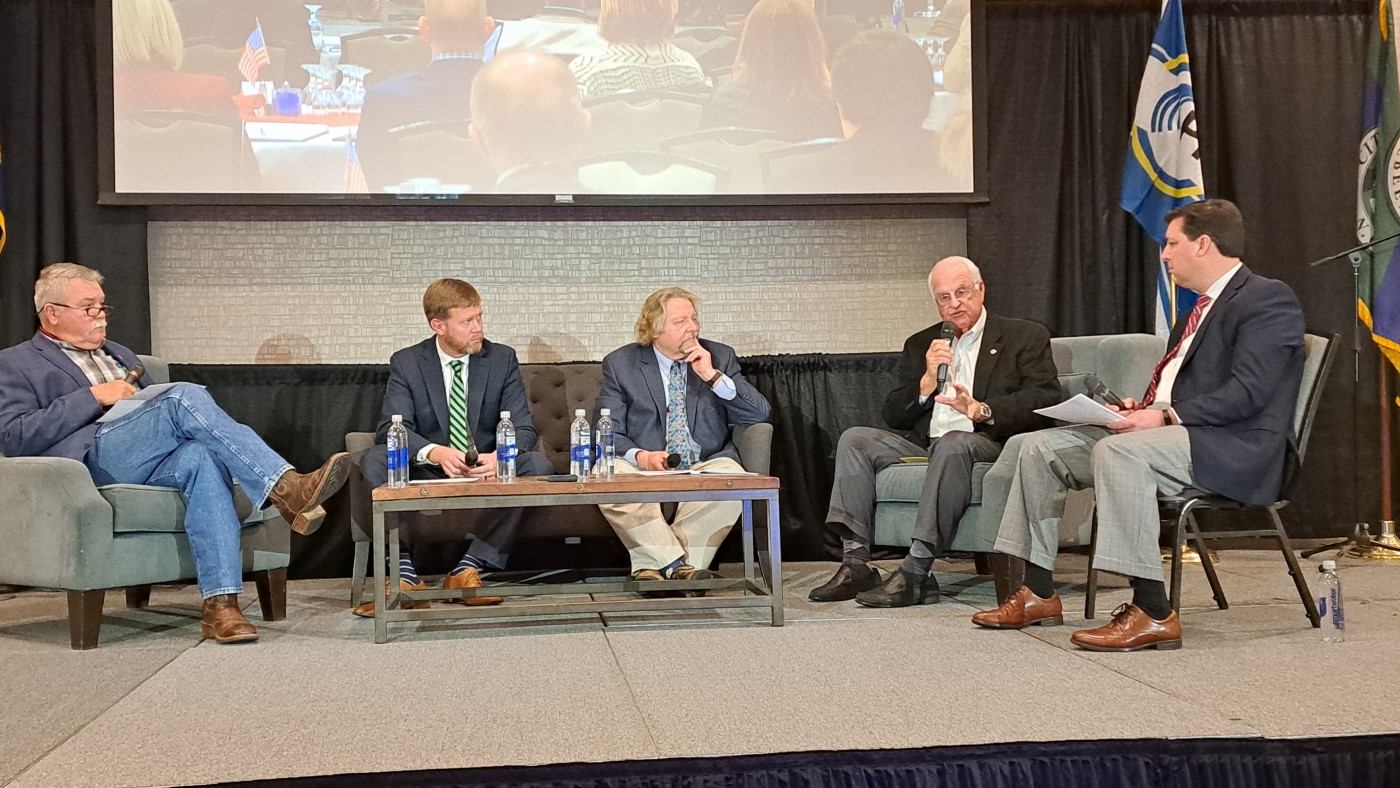Federal, state, and local elected officials along with academics and innovators gathered in Greenville, North Carolina last Wednesday for Congressman Greg Murphy and Congressman David Rouzer’s third annual Water Adaptation to Ensure Regional Success, or WATERS, Summit. Congressman Murphy told SFN…
I think we’re developing an umbrella that brings together policymakers, elected officials, academics, local communities, to look at this issue in total.
Rouzer says the focus of the event is the flooding that Eastern North Carolina has sustained following several recent storms. The goal is to learn from others and for mitigation strategies.
Flooding is a comprehensive all-encompassing problem. There is no silver bullet you know, answer. You know, one of the main purposes of this event is to pull people together experts from all around the state all around the country, in fact, experts from around the world.
One solution is water farming. State Ag Commissioner Steve Troxler says it’s an idea that can be implemented fairly quickly and relatively inexpensively.
We have built thousands and thousands of ponds and lakes in North Carolina. If we were in North Carolina to go double that flood storage about foot, more dirt on top of the dam, that in itself would be billions and billions and billions of gallons of water that we could store ahead of the flood event.
But money it will take. So where will that come from and how quickly? State Representative Jimmy Dixon of Duplin County.
I’m chairman of the Environmental Review (Committee), and I plan on convening that (committee) this coming month and have this same discussion. I’m also the chairman of the Agriculture and Forestry Oversight (Committee), which is the funding mechanism. We’re gonna do the same thing there. So we’ve got ag and forestry oversight funding, we’ve got ERC policy, and I’m going to marry the two.
While water farming is one tactic, Rouzer says there have to be other initiatives as well and many voices at the table.
I think there needs to be more coordination, which is never an easy thing. You have hundreds and hundreds of communities that are impacted and really, at the end of the day, they all need to be on the same page moving in the same direction.
The previous two summits laid the groundwork. Now Murphy says it’s the time for action.
I think it’s just bringing together some very smart people. We identified a problem. We started putting together a plan and then we need to execute.
Photo credit Mike Davis/SFN


